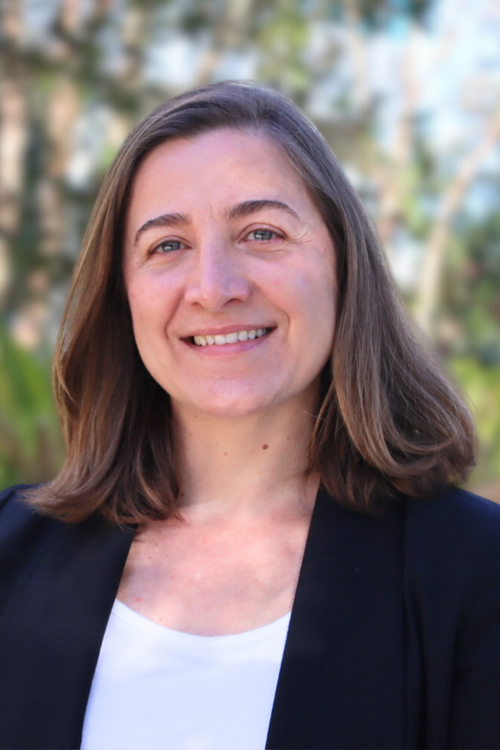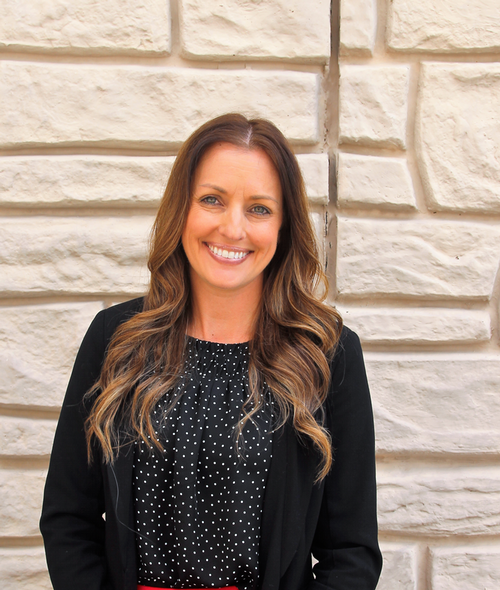The Thomas A. Mulkeen Dissertation Award
Thomas A. Mulkeen was a professor at Fordham University who was hired as a consultant and shared his expertise with faculty at UNF as they designed and developed the EdD doctoral program in Educational Leadership. Tom was a leader within the Danforth Foundation initiative that sought to redesign and improve graduate programs in Educational Leadership. It was Tom who encouraged the doctoral program to focus the dissertation on practice-centered inquiry. Unfortunately, Tom passed away around the time that the UNF EdD program graduated the first students in 1994. In honor of his work, the EdD program faculty established this award in his honor. This award is given to the dissertation that best exemplifies practice-centered inquiry.
Criteria:
The Silverfield College of Education and Human Services will celebrate its Educational Leadership and Curriculum and Instruction doctorate recipients with an annual presentation of the prestigious Thomas Mulkeen Award, tentatively scheduled to take place during the SCOEHS Convocation. The Award is given to the graduate whose doctoral dissertation best exemplifies practice-centered inquiry in educational leadership or curriculum and instruction. An ad-hoc group of the doctoral teaching faculty will evaluate the submitted dissertations based on the following criteria:
- Conceptually clear and important problem or hypotheses;
- Comprehensive review of applicable literature;
- Utilization of appropriate and methodologically sound approach;
- Cogent analysis of data;
- Clear discussion of the importance and relevance of the study;
- Scholarly writing style and appropriate documentation (citations and references in APA style);
- Potential of the inquiry to influence education practice.
Information about the next nomination window is shared here when it is available.
2024 Recipients of the Thomas Mulkeen Award for the Doctoral Dissertation that Best Exemplifies Practice-Centered Inquiry

Dr. Valentina Bongiovanni
Dr. Valentina Bongiovanni is a post-doctorate associate for NEFSTEM at SCOEHS and acts as the STEM Toolkit Program Manager. This early childhood program promotes at-home family STEM skills development and learning. This program is run in collaboration with several schools in the Jacksonville area with the support of Kids Hope Alliance. With a background in communications and digital learning and her experience in international and multicultural education, she contributes to the design of the STEM Toolkits and the program's structure to foster informal learning spaces that support community building and incentivize collaborations between educators, parents, and children. She strives to support parents and their children in becoming active agents in their STEM learning journey. For her dissertation, Exploring Parental Engagement in a Family STEM Program Leveraging Social Media Spaces, Dr. Bongiovanni designed a mixed methods study that delves into the how and why parents engage by examining roles, actions, values, and the impact of parent-to-parent relationships in a take-home family STEM program. This research illuminates how leveraging social media can promote and strengthen parental engagement by facilitating relationships and interactions between the program and other parents within the social media space. Additionally, utilizing social media channels, such as the closed Facebook groups used for the STEM Toolkit Program, can establish informal learning environments that offer greater autonomy in how families engage and express their participation.

Dr. Haley Vogel
Dr. Haley Vogel is completing her 22nd year in public education, serving St. Johns County School District for the last twenty. Haley’s passion is classroom instruction, and for the past seven years, she has focused on helping teachers become the best versions of themselves., Dr. Vogel is currently serving as the vice principal of a K-8 school. She has spent the majority of her career as a high school assistant principal and science teacher. In addition to her role as a school leader, she works as a consultant for Solution Tree, where she leads professional learning opportunities on balanced assessment systems for teachers across the country. She also serves as a board member for the Florida Association of School Administrators. Under the guidance of Dr. Diane Yendoll-Hoppey, Haley’s dissertation entitled A New Perspective on Teacher Attrition and Retention: What can be Learned from Teachers that Continue in the Profession, the Stayers? explored the dynamics of teacher retention, by shifting the lens to gain understanding from those they remain in the profession. For school leaders committed to reducing teacher turnover, it's essential to understand this research about how they can support teachers as well as identify gaps in current decision-making practices to foster an environment where teachers cannot just survive but thrive.
Past Recipients of the Thomas Mulkeen Award for the Doctoral Dissertation that Best Exemplifies Practice-Centered Inquiry
2023
Dr. Shaneka Ferrell
Dr. Laura Mayberry
2022
Dr. Laurie Hoppock
Chair: Dr. David Hoppey
Dr. Jennifer Shepard
Chair: Dr. Diane Yendol-Hoppey
2021
Dr. Lee Anderson Louy
Chair: Dr. David Hoppey
The Role Academic Deans Play in Public Higher Education Fundraising
Dr. Jennifer Perkins
Chair: Dr. Amanda Blakewood Pascale
2020
Cheryl Mobley Gonzalez
Chair: Dr. Anne Swanson
Megan McMillan
Chair: Dr. David Hoppey
Leading Effective Inclusive Schools: How Principals Make the Difference
Kristen Duffney
Chair: Dr. Daniel Dinsmore, Ph. D
Effects of Online ABA Training on Stress Levels of Parents with a Child with Autism
Raine Osborne Jr.
Chair: Dr. Daniel Dinsmore, Ph. D
2018
Sarah Friswold-Atwood
Chair: Dr. Daniel Dinsmore, Ph. D
Anthony Mortimer
Co-Chairs: Dr. Carolyn Ali-Khan, Ph. D. and Dr. Daniel Dinsmore, Ph. D
2017
Travis Henderson
Chair: Anne K. Swanson, Ph. D
2016
Shawn Brayton
Chair: Elinor A. Scheirer, Ph.D.
Participant Perceptions of Knowledge Sharing in a Higher Education Community of Practice
2015
Mai Keisling
Chair: Christopher Janson, Ph. D.
2014
Tavy Wells
Chair: Larry G. Daniel, Ph. D.
2013
William Ganza
Chair: Katherine Kasten Ph.D.
The Impact of Online Professional Development on Online Teaching in Higher Education
Jevetta Stanford
Chair: Katherine Kasten Ph.D.
2012
Janie Smalley
Chair: Katherine Kasten, Ph.D.
2010
Jeane Richards
Chair: Larry G. Daniel, Ph.D.
Teaching for Cultural Competence: Preferred Strategies of Baccalaureate Nursing Faculty
2009
Robert Todd Parrish
Chair: Katherine Kasten, Ph.D.
The Teach for Florida Project: A Case Study of Alternative Route Certification Policy
2008
Angela Garcia Falconetti
Chair: Joyce T. Jones, Ph.D.
James Young
Chair: Cheryl Fountain, Ph.D.
Assessing the Impact of Family Coaching on Parental Attitudes and Behaviors
2007
Gigi M. David
Chair, Katherine M. Kasten, Ph.D.
Assessing the Impact of a Visual Arts Family-Focused Pre-Kindergarten Intervention
2006
Cynthia S. Jacobs
Chair -- Katherine M. Kasten, Ph.D.
2005
LaDonna K. Morris
Chair – Larry G. Daniel, Ph.D.
Perceptions of a Chilly Climate: Differences in Traditional and Non-traditional Majors for Women
2004
Claribel Torres-Lugo
Co-Chairs: Warren A. Hodge, Ph.D. and Larry G. Daniel, Ph.D.
Principal’s Assessment of Florida’s Accountability Model: A Descriptive Overview of School Factors Associated with High-Stakes Accountability
2003
John A . Frank
Chair: Charles M. Galloway, Ed.D.
Transformational Leadership and Moral Discourse in the Workplace and Civil Society
2002
Joel Whitt Beam
Chair: Thomas S. Serwatka, Ph.D.
Preferred Leadership of NCAA Division I and II Intercollegiate Student-Athletes
2001
Margo L. Martin
Chair: Thomas S. Serwatka, Ph.D.
The Connection Among Computer-Mediated Communication, Course Completion Rate, and Achievement in Relation to Distance Education and the English Composition Student
2000
Kathryn M. Krudwig
Chair: Robert J. Drummond, Ed.D.
Learner Centeredness as a Predictor of Teachers' Role Stress and Career Commitment
1999
Judith B. Poppell
Chair: Katherine M. Kasten, Ph.D.
The Effect of School Desegregation on an Historically Black High School
1998
Madelaine M. Cosgrove
Chair: Katherine M. Kasten, Ph.D.
The Impact of Professional Development School Activities on Classroom Teachers’ Sense of Efficacy and Classroom Practice
1996
Linda Rhea Hunter
Chair: Robert J. Drummond, Ed.D.
1995
Jeanne E. Borstein
Chair: Elinor A. Scheirer, Ph.D.
The Effects of Cooperative Learning on the Attitudes and Achievement of Academically Talented Secondary Students
1994
Paige V. French
Co-chairs: Charles M. Galloway, Ed.D., Katherine M. Kasten, Ph.D.
The Roles of School and Advisory Councils in School Improvement: A Case Study in Policy Interpretation
